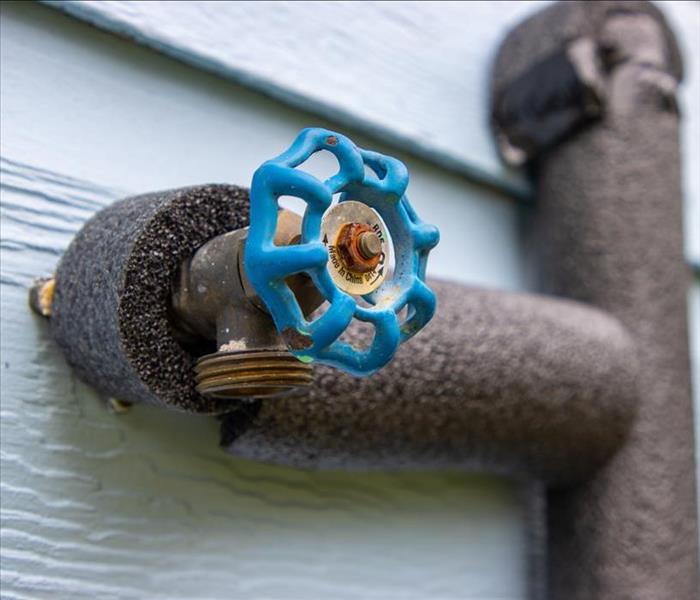Preventing Frozen Pipes and Water Damage This Winter: Essential Tips | SERVPRO of Victor/Canandaigua
1/15/2025 (Permalink)
 Prepare your property for the upcoming winter season with these helpful tips from SERVPRO of Victor/Canandaigua.
Prepare your property for the upcoming winter season with these helpful tips from SERVPRO of Victor/Canandaigua.
Winter is a beautiful season, but it also brings challenges such as frozen pipes and potential water damage. When temperatures drop, the risk of pipes freezing and bursting increases, which can lead to significant water damage in your home.
Taking proactive measures to protect your plumbing system can help you avoid costly repairs and disruptions. Here’s how to keep your pipes from freezing and ensure your home remains safe and dry throughout the winter months.
Insulate Your Pipes
One of the most effective ways to prevent frozen pipes is by insulating them. Pipes located in unheated areas, such as basements, attics, and garages, are particularly vulnerable to freezing temperatures. Use pipe insulation or heat tape to cover these exposed pipes, providing an extra layer of protection against the cold. If you live in an older home with uninsulated pipes, consider adding insulation to those areas to improve their resistance to freezing.
In addition to insulating pipes, ensure that any gaps or cracks in the walls or foundation are sealed to prevent cold air from reaching your plumbing system. Proper insulation is a simple yet crucial step in safeguarding your pipes against winter’s chill.
Maintain a Consistent Temperature
Keeping your home at a consistent temperature is vital in preventing pipes from freezing. During particularly cold spells, it’s important to maintain a minimum temperature of 55 degrees Fahrenheit, even if you’re away from home. Set your thermostat to this temperature to ensure that the warmth reaches all areas of your home, including those with vulnerable pipes.
If you have a programmable thermostat, use it to regulate the temperature and avoid drastic fluctuations. Additionally, open cabinet doors under sinks, especially those located on exterior walls, to allow warm air to circulate around the pipes. By maintaining a steady temperature and allowing for adequate airflow, you can significantly reduce the risk of frozen pipes.
Take Preventive Actions During Extreme Cold
During extreme cold weather, extra precautions are necessary to protect your pipes from freezing. If the forecast predicts unusually low temperatures, let the faucets in your home drip slowly. This trick helps to keep water moving through the pipes, reducing the likelihood of freezing. Additionally, if you’re planning to be away for an extended period, ask a trusted friend or neighbor to check on your home and ensure that the heating system is working correctly.
In case of a power outage, knowing how to shut off the main water supply can prevent extensive damage if pipes do freeze or burst. Having a plan in place for extreme weather conditions will help you respond quickly and minimize potential water damage.
Preventing frozen pipes and water damage during the winter season requires vigilance and preparation. By insulating your pipes, maintaining a consistent temperature, and taking preventative actions during extreme cold, you can protect your home from the risks associated with winter weather. However, if you do experience water damage despite your best efforts, SERVPRO of Victor/Canandaigua is Here to Help®.
Contact SERVPRO of Victor/Canandaigua today for immediate support and ensure your home is safe and dry throughout the winter months.






 24/7 Emergency Service
24/7 Emergency Service